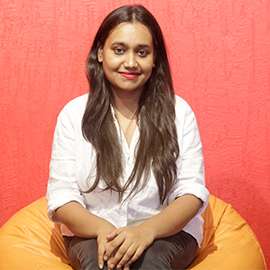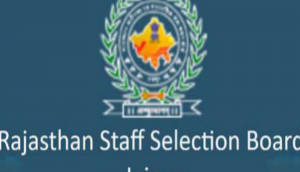
Indian higher education is largely dominated by two names - Indian Institutes of Technology (IITs) and Indian Institutes of Management (IIM). Apart from these, a few central varsities have managed to create a mark for themselves. Yet, none of them can claim to offer an Ivy League-worth education.
Can India ever offer Ivy league education? Can we host universities like Harvard or Stanford or MIT, offering world class education in modern subjects, which will be much sought after by both national and international students?
We may have finally found our answers through these two universities -
Ashoka University
Shiv Nadar University
Game changers in the higher education space, here's why these two varsities could emerge as institutes of excellence coming out of India.

Ivy League set-up
World class institutes require world class support system, something both Ashoka and SNU have managed to secure.
Ashoka, established in 2014, has a very different governance model. With close to 90 founders, all industry stalwarts and top entrepreneurs, Ashoka is a private university based on collective philanthropy of industrialists.
"Ashoka University is based on the concept of modern philanthropy that allows leaders from several industries within India to participate in institute building. Four of us came together in the beginning - me, Ashish Dhawan, Sanjeev Bhikchandani and Pramath Raj Sinha. Today, we have close to 90 founders," says Vineet Gupta, Co-Founder and Managing Director at Jamboree Education.
Also Read: Top 10 upcoming Indian universities to watch out for
"Ashoka is run by the collective philanthropy which makes it possible to have several donors to the university and participation from several individuals and corporates. This is very distinct from one family or person building an institute," says Gupta. The university offers a wide range of liberal courses with unique study pedagogy.
SNU, on the other hand, was established by Shiv Nadar Foundation, which has already created a niche in education through some institutes of excellence. The varsity, which is striving to emerge as the top varsity in the world, is based on three pillars of education:
Core Common Curriculum (CCC)
University Wide Electives (UWE)
Major-Minor combination
"SNU offers many unique courses in their schools of engineering, social sciences, etc. Idea is to give holistic and all-round development to a student," says Rajeev Kumar, Assistant Dean of Undergraduate Studies, Department of Computer Science and Engineering, School of Engineering.
Also Read: Smriti Irani to parents: Please let children choose their own streams

Curriculum and Teaching Pedagogy
Ashoka is one of the few universities in India right now, promoting the idea of broad liberal education.
"Ashoka does not offer any professional degrees such as engineering, management, law, hotel management studies. Our courses focus on pure forms of knowledge or pure discipline such as humanities, social sciences, pure science and applied science. This allows our students to explore disciplines, gain a breadth of education and then focus on depth or core subject. Education should first be spread across disciplines, followed by specialisation. We believe in developing 21st century skills of critical thinking, reading, writing, sense of public service, leadership and so on," says Gupta.
For a three-year degree course, students need to complete 24 courses through six semesters. Out of the 24, 12 courses must be from across disciplines while the remaining 12 in the core area of choice.For instance, if a student is pursuing science course, 12 courses will be in science while the remaining 12 have to be from multiple disciplines eg: history, mathematics, critical thinking, etc.
Also Read: Beware! Here are India's 22 fake universities
Some of the centres of study at Ashoka are:
Centre for Entrepreneurship
Centre for Individual and Group Experience (CIGE)
Centre for Social Impact and Philanthropy (CSIP)
Centre for Studies in Gender and Sexuality
Genpact Centre for Women's Leadership (GCWL)
Ashok Trivedi Centre for Political Data
Ashoka has attracted the top faculty from all over the world and India.
"Some of the full time faculties have relocated from US. We have Professor Alex Watson, from Harvard, Professor Jonathan Gil Harris from George Washington. We also have Professor Maya Saran from the University of Illinois, Kranti Saran from Harvard, Madhavi Menon from American University. We also have several top Indian-based faculties," says Vineet Gupta.
Shiv Nadar University follows a unique major - minor combination curriculum. Under this, students can have specialisation in two diverse fields of study.
For instance, students majoring in computer science can do a minor programme in finance. Similarly, mechanical engineering students can do minor in arts & design, and so on.
Moreover, every student needs to study some subjects from the Core Common Curriculum (CCC), where one has to take up 18 to 24 credit from liberal arts courses. "Students from engineering will also have to do courses on literature, world and Indian history, art & design, communication. We try to keep an interesting framework for students," says Kumar.
He adds, "We have certain interesting courses created specifically for SNU, like critical thinking courses, literature, identity and theater. Here, communication skills are taught to students via theater. We believe in learning by doing."
At SNU, the curriculum is designed in consultation with global faculty and the industry. "Two new programmes have been introduced this year - Bachelor of Management Studies and iGlobal MBA programme. These courses were developed by faculty from Harvard, HAAS school of business, SNU and IIM Calcutta. For computer science, we have partnered with HCL to look at designing at course, which will be taught both by the firm and us. We are currently talking to Bank of America to look at a course. There's an active collaboration with industry. This adds value to our curriculum and students can start delivering right away after being absorbed in an organisation," says Kumar.
Recently, Dell has donated a lab set up worth Rs 1 crore, for the benefit of students. "Dell has not done this in any university before," says Kumar.
The first SNU batch passed out in 2016.
"31 students received offers from best schools in the world. Varun Mishra, a student from computer science, got an offer from Darthmouth college for direct PhD programme (after Masters). Varun Dhabi has been absorbed by NUS Singapore," says Kumar.
Fee Structure
SNU charges about Rs 9,40,000 ($14000) over a period of four years.
Ashoka University, on the other hand charges about Rs 7 lakh ($10000 to $11000 dollars) per year as tuition fees. A three-year course can cost well above Rs 20,00,000.
However, the university founder says that at comparative price point, an education at Ashoka is quite cheap.
"At this price point, we offer an education that can compare to the best in the world - in terms of facilities, learning pedagogies, quality of faculty. Comparative price point for similar education in the world is $50000 - $60000 a year. Through Ashoka, India can demonstrate that we too can offer quality education at 1/5th or 1/6th of the price," he says.
Both the varisites are quite liberal on scholarships.
At SNU, every student is covered under some or the other scholarship, whereas at Ashoka, about 60% students are on some form of scholarship.
Also Read: 'Coaching institutes suck, should be shut down,' 17-yr-old writes in her suicide note
Admission
Ashoka admits students on basis of marks (in classes 9, 10, 11, 12), extra curricular activities, interviews and essays.For admission to SNU, candidates need to meet the minimum eligibility criteria. A detailed document has been mapped out for each state board. For instance, CBSE students need 80% to apply for engineering programmes. Criteria is different for each board.
"The admission criteria is evolving each year. This year, we've a minimum eligibility criteria. In 2017, admission will be based on entrance test and Class 12th marks," says Kumar.
Future
Both universities have received tremendous response. Neither is spending on advertisement. It's all word of mouth.
"In India, the situation is very different from Europe. All top universities in Europe are private universities, funded by endowments. But these new age universities in India are going to create this culture. It will need 10 - 15 years for the culture to develop. Because it's a game of perception. And it takes time to change the perception of people," says Gupta.
First published: 13 June 2016, 5:14 IST







![BJP's Kapil Mishra recreates Shankar Mahadevan’s ‘Breathless’ song to highlight Delhi pollution [WATCH] BJP's Kapil Mishra recreates Shankar Mahadevan’s ‘Breathless’ song to highlight Delhi pollution [WATCH]](https://images.catchnews.com/upload/2022/11/03/kapil-mishra_240884_300x172.png)

![Anupam Kher shares pictures of his toned body on 67th birthday [MUST SEE] Anupam Kher shares pictures of his toned body on 67th birthday [MUST SEE]](https://images.catchnews.com/upload/2022/03/07/Anupam_kher_231145_300x172.jpg)






